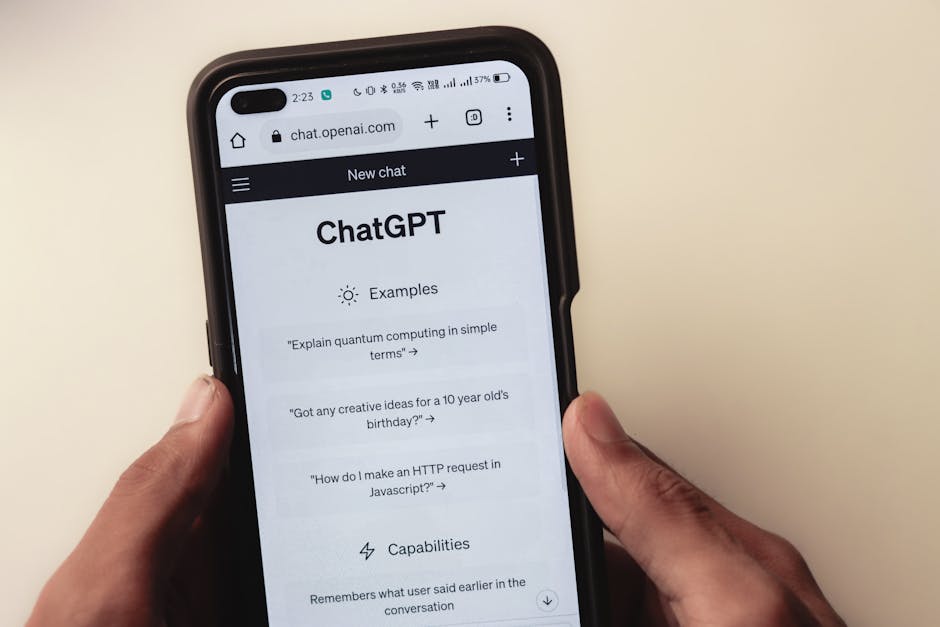African Catholic Press Calls for Ethical AI in News Dissemination
The African Catholic Union of the Press (ACUP) in 2025 has issued a statement urging responsible development and deployment of artificial intelligence (AI) in news reporting across Africa, particularly emphasizing its potential for enhancing accuracy and combating misinformation. The call highlights growing concerns about the spread of false narratives and the potential for AI to exacerbate existing challenges in media credibility. This statement comes amidst a rapidly evolving media landscape characterized by both the proliferation of digital platforms and the increasing sophistication of AI-driven tools.
AI’s Double-Edged Sword in African Media
The ACUP’s statement acknowledges the transformative potential of AI in newsgathering and dissemination. AI-powered tools can automate tasks like fact-checking, translation, and content personalization, potentially increasing the efficiency and reach of news organizations. This could prove particularly beneficial in regions with limited resources, enabling smaller outlets to compete more effectively with larger international news agencies. However, the organization emphasizes the critical need for ethical guidelines and responsible implementation.
Concerns Regarding Misinformation and Bias
The ACUP expresses significant concern about the potential for AI to be misused for the spread of misinformation and propaganda. AI algorithms can be manipulated to create highly realistic fake news, deepfakes, and targeted disinformation campaigns. The speed and scale at which such content can be disseminated pose a significant threat to public trust and social cohesion. Moreover, biases embedded within AI algorithms can inadvertently perpetuate existing societal inequalities and prejudices, leading to biased news coverage. The potential for algorithmic bias remains a significant hurdle to overcome.
The Need for Ethical Frameworks and Regulation
The ACUP advocates for the establishment of robust ethical frameworks and regulatory mechanisms to govern the use of AI in African journalism. These frameworks should address issues such as data privacy, algorithmic transparency, and accountability for AI-generated content. The organization calls for collaboration between governments, media organizations, and civil society groups to develop and implement these guidelines. Without such regulation, the potential benefits of AI could be overshadowed by its risks.
Challenges in Implementation and Enforcement
However, the practical implementation and enforcement of these regulations face significant hurdles. Many African countries lack the infrastructure, technical expertise, and resources needed to effectively monitor and regulate the use of AI in the media. Moreover, the rapid pace of technological advancement makes it difficult to keep up with the latest AI tools and their potential for misuse. This necessitates a flexible, adaptable regulatory approach.
Education and Media Literacy Initiatives
The ACUP stresses the importance of investing in education and media literacy programs to empower citizens to critically evaluate information and identify misinformation. Such initiatives should focus on developing critical thinking skills, promoting digital literacy, and providing citizens with the tools to identify and debunk fake news. This is crucial in combating the spread of disinformation fuelled by AI-generated content. These programs will need to be adaptable to evolving technologies.
Key Data on Media Literacy in Africa (2025)
- Only 35% of the adult population in Sub-Saharan Africa possesses basic digital literacy skills, according to a 2025 UNESCO study.
- Investment in media literacy programs across Africa totals approximately $50 million USD in 2025, far below the levels required to address the growing threat of misinformation.
- A recent survey showed that 60% of Africans report encountering fake news online at least once a week, highlighting the urgency of addressing media literacy gaps.
Collaboration and International Support
The ACUP underscores the need for international collaboration and support to address the challenges posed by AI in African media. This includes sharing best practices, providing technical assistance, and facilitating capacity-building initiatives. International organizations and developed countries can play a crucial role in supporting the development of ethical AI frameworks and media literacy programs across Africa. Such collaboration is vital in navigating the complexities of AI governance.
Future Implications and Recommendations
The long-term implications of AI in African media are far-reaching and depend heavily on the choices made today. Failure to address the ethical challenges associated with AI could lead to increased polarization, erosion of public trust, and instability. Conversely, responsible development and deployment of AI could unlock significant opportunities for improving news accuracy, expanding access to information, and fostering more informed and engaged citizenry. The ACUP’s call for ethical considerations is not merely a recommendation; it’s a necessity.
Conclusion: A Call for Responsible Innovation
In conclusion, the ACUP’s statement represents a crucial call for responsible innovation in the application of artificial intelligence within the African media landscape. The organization’s emphasis on ethical frameworks, media literacy initiatives, and international collaboration highlights a path toward leveraging AI’s potential benefits while mitigating its inherent risks. The success of this endeavor will depend on a concerted effort from all stakeholders – governments, media organizations, technology developers, and civil society – to ensure that AI serves the cause of accurate and truthful information, ultimately contributing to a more informed and just society. The future of African media, and its role in democracy, depends on this collective effort.

